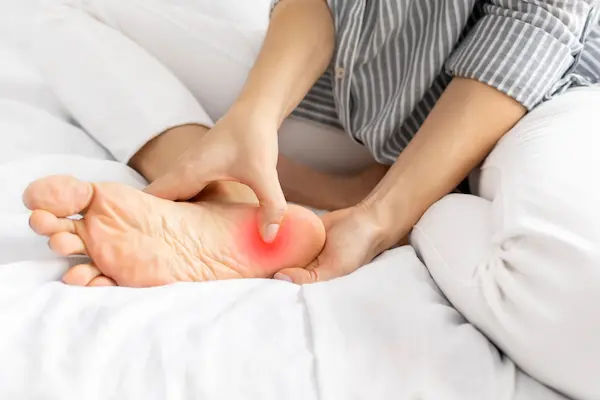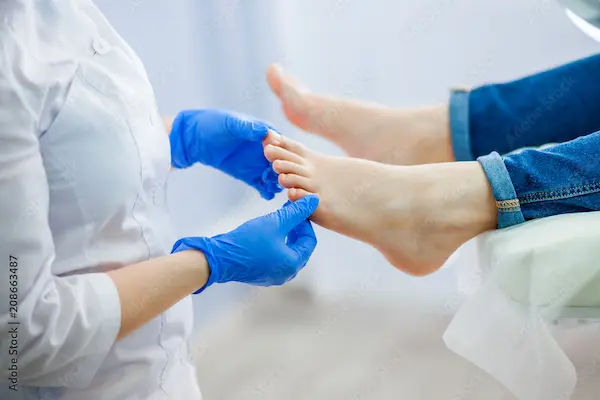- female
- 30 Years
- 29/01/2025
I'm dealing with an issue where I've got a corn on my left foot, and it's filled with pus. It's not really painful, but there's pus coming out, and I'm worried it might get infected. This corn popped up in the same spot where I previously had one removed by a doctor. I'm really hoping to avoid another surgery. Could you recommend an ointment or something to help with the infection? Appreciate your advice.
More Podiatry Health Queries
View allI'm having a lot of pain in my right leg because of an issue with my thumbnail. I can't even touch it or trim the nail because it's gotten under the skin. What should I do to fix this?
Ingrown toenails can be quite painful; consider consulting a doctor, preferably a dermatologist
read more![Doctor 1]()
![Doctor 2]()
Answered by 1 Apollo Doctors
I'm really concerned because my 7-year-old has developed a corn on her right foot and I'm not sure what to do about it. I'm trying to figure out if it's better to go with laser removal or to stick with the traditional method. My main worry is choosing the option that's the least painful for her. Any advice on which method might be best for someone her age?
laser is pain less
read more![Doctor 1]()
![Doctor 2]()
Answered by 1 Apollo Doctors
Is it safe to use corn cap for foot corns if I have diabetes? The pain is really bad when I walk barefoot. Also, if I need minor surgery for this, how many days will it take to heal?
No, using corn caps or other over-the-counter treatments for corns is not recommended if you have diabetes. They can increase the risk of infection, slow healing, and potentially lead to serious foot complications. If you need minor surgery for corn removal, healing typically takes 3 to 7 days
read more![Doctor 1]()
![Doctor 2]()
Answered by 1 Apollo Doctors
Disclaimer: Answers on Apollo 247 are not intended to replace your doctor advice. Always seek help of a professional doctor in case of an medical emergency or ailment.






